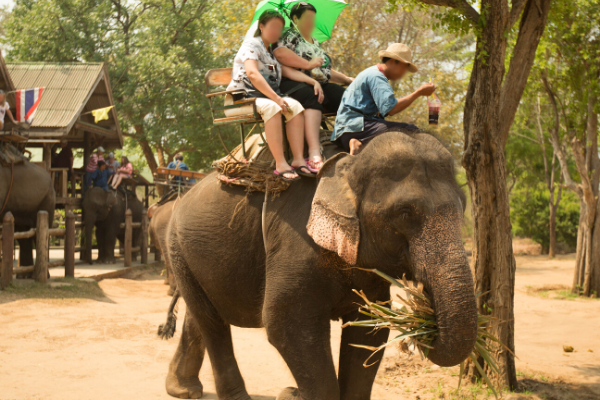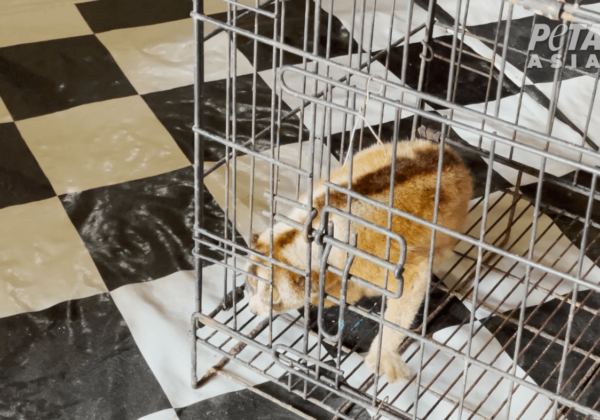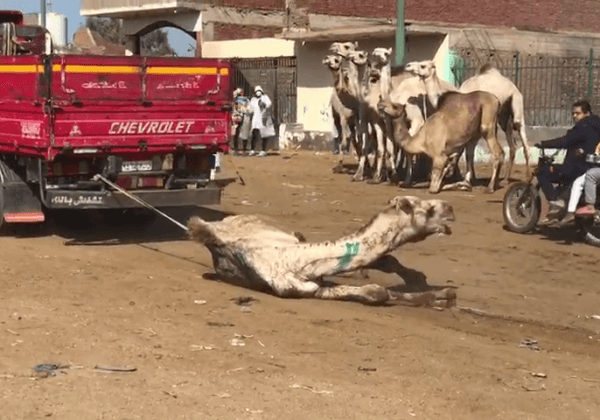Post-COVID Travel Alert: Never Support Thailand’s Cruel Elephant Camps
Harrowing pictures of emaciated elephants chained by their necks at an elephant camp in Thailand provoked worldwide outrage. But the facility, called Chang Puak Camp, is just one of many throughout Asia that dupe tourists into believing they are “helping” elephants. But it’s all a scam and elephants are suffering on a massive scale.
Conscientious travelers are naturally attracted to places that claim to rescue animals and offer them refuge. But tourists who pay to ride an elephant or participate in an up close encounter are responsible for ensuring that elephants will suffer.
Life in chains, living in fear of being whacked with a metal-tipped ankuses (bullhooks), is misery for elephants. In the wild, elephants are active, engaged and on the move for up to 18 hours a day. They explore, socialize and love to swim. Aunts babysit, mothers teach youngsters life skills such as how to use different kinds of leaves and mud to ward off sunburn and insect bites, adults share news and gossip and resolve disputes and elephant relatives mourn their dead. Elephants have the largest brains of any mammal on Earth and think, plan and remember. Elephants truly never do forget; their memories are extraordinary.
Your Ticket, Your Fault
International watchdogs have documented that wild elephants are being captured to perpetuate the lucrative tourist industry.
TRAFFIC, a leading international wildlife trade monitoring network, released an exposé about how tourists drive elephant suffering, including the capture of wild elephants. The investigation found that, “In Myanmar, broken elephants are used to corral wild animals into pit-traps where older protective members of herds are often killed and the higher value, younger animals taken. The young are then transported to Thai-Myanmar border areas and then mentally broken and prepared for training before being sold into the tourism industry in Thailand where they are put to work at tourist camps or hotels.”
Thailand is the world’s largest promoter of elephant camps where the barbaric Phaajaan ritual is used to break baby elephants and force them to submit to humans. Phaajaan translated means “breaking the love between” (referring to the love between baby elephant and his or her mother). In these training camps, still-nursing baby elephants are dragged from their mothers, bound with ropes and steel cables and immobilized in wooden cages. They are beaten mercilessly for days while deprived of food, water, and sleep. Thai villagers gouge them with nail-studded sticks. The babies panic, collapse in exhaustion, defecate in fear, and scream out in terror and pain.
Don’t Buy a Ticket
Now that travel is resuming, tourists who don’t want to support this appalling cruelty should only visit parks or sanctuaries like Boon Lott’s Elephant Sanctuary to see the elephants in their natural environment living as nature intended instead of paying to take a ride or bathe an elephant or see them paint or perform circus tricks.










